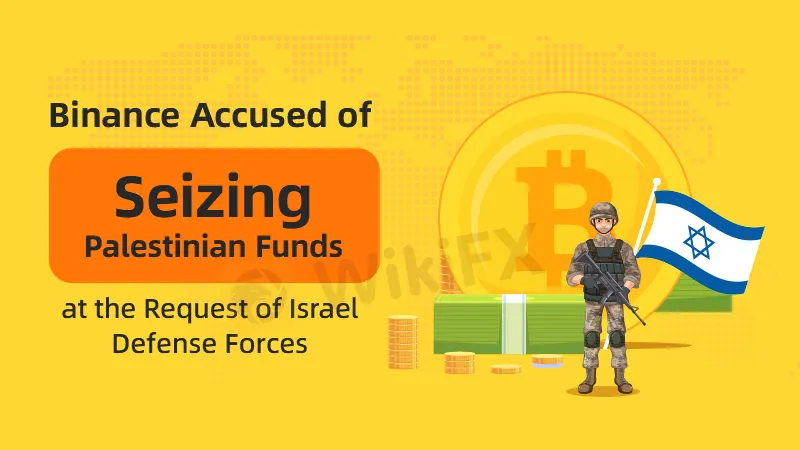Binance Accused of Seizing Palestinian Funds at the Request of Israel Defence Forces
Sommario:Binance, the leading global cryptocurrency exchange, is facing allegations of seizing funds from Palestinian users at the behest of the Israel Defence Forces (IDF).

Binance, the leading global cryptocurrency exchange, is facing allegations of seizing funds from Palestinian users at the behest of the Israel Defence Forces (IDF). This claim has sparked significant controversy, raising questions about Binance's adherence to international financial regulations and its role in politically sensitive regions.
The allegations came to light through Ray Youssef, co-founder of Paxful and CEO of the Noones P2P platform. Youssef took to X (formerly Twitter) to accuse Binance of confiscating funds from Palestinian users following a request from the IDF. He argued that Binance's actions were grounded in Israels anti-terrorism laws, which authorize the temporary seizure of assets, including cryptocurrency, from organizations labelled as terrorist entities.
Youssef went on to claim that Binance has steadfastly refused to return the confiscated funds, ignoring all appeals from the affected users. He cautioned that similar actions might soon target users in Lebanon and Syria, invoking the cryptocurrency communitys cautionary phrase, “Not your keys, not your coins,” which warns against the risks of entrusting digital assets to third-party platforms.

The legal framework cited for Binance's actions includes a letter from Israel‘s National Bureau for Counter Terror Financing, allegedly signed by Paul Landes. This letter, written in Hebrew, outlined that Israel’s anti-terrorism laws permit the confiscation of cryptocurrency assets transferred by or to entities designated as terrorist organizations. The letter was reportedly used as a basis for the seizure of Palestinian users' funds.
In response to these serious allegations, Binance has publicly denied the claim that it indiscriminately seized funds from all Palestinian users. The exchange, in a statement to Cointelegraph, clarified that it had only restricted accounts linked to illicit activities. Binance insisted that the number of affected users was small and that the actions taken were consistent with its obligations under international sanctions legislation, mirroring the practices of other financial institutions. A spokesperson for Binance also expressed hope for enduring peace in the region, although the exchange did not provide specifics on the timing of these account restrictions or the exact number of users affected.
This incident further complicates Binances ongoing struggles with regulatory scrutiny. The exchange has been at the centre of multiple legal challenges, including a recent lawsuit accusing it of involvement in laundering stolen cryptocurrency. The current controversy, involving allegations of politically motivated asset seizures, underscores the complexities that global cryptocurrency platforms face in navigating regulatory and ethical dilemmas in conflict-prone regions.
While Palestine constitutes a minor share of Binance‘s overall traffic, data from SimilarWeb revealed that traffic from Palestine to Binance’s platform increased by more than 80% since August 2023. This surge, combined with the recent allegations, has amplified concerns among users in the region about the security and control of their assets on the platform. As the situation continues to develop, Binance's handling of these issues will be closely watched by the global cryptocurrency community and regulatory bodies alike.
This controversy is likely to fuel further debate about the role of cryptocurrency exchanges in politically sensitive regions and the broader implications for user security and trust.

WikiFX Trader
Vantage
ATFX
Tickmill
IC Markets Global
FBS
VT Markets
Vantage
ATFX
Tickmill
IC Markets Global
FBS
VT Markets
WikiFX Trader
Vantage
ATFX
Tickmill
IC Markets Global
FBS
VT Markets
Vantage
ATFX
Tickmill
IC Markets Global
FBS
VT Markets
Rate Calc
